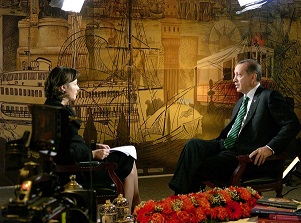Boston Marathon, this thing called terrorism, and the United States
What is it that makes young men, reasonably well educated, in good health and nice looking, with long lives ahead of them, use powerful explosives to murder complete strangers because of political beliefs?
I’m speaking about American military personnel of course, on the ground, in the air, or directing drones from an office in Nevada.
Do not the survivors of US attacks in Iraq, Afghanistan, Yemen, Pakistan, Somalia, Libya and elsewhere, and their loved ones, ask such a question?
The survivors and loved ones in Boston have their answer – America’s wars in Iraq and Afghanistan.
That’s what Dzhokhar Tsarnaev, the surviving Boston bomber has said in custody, and there’s no reason to doubt that he means it, nor the dozens of others in the past two decades who have carried out terrorist attacks against American targets and expressed anger toward US foreign policy.[1] Both Tsarnaev brothers had expressed such opinions before the attack as well.[2] The Marathon bombing took place just days after a deadly US attack in Afghanistan killed 17 civilians, including 12 children, as but one example of countless similar horrors from recent years. “Oh”, an American says, “but those are accidents. What terrorists do is on purpose. It’s cold-blooded murder.”
But if the American military sends out a bombing mission on Monday which kills multiple innocent civilians, and then the military announces: “Sorry, that was an accident.” And then on Tuesday the American military sends out a bombing mission which kills multiple innocent civilians, and then the military announces: “Sorry, that was an accident.” And then on Wednesday the American military sends out a bombing mission which kills multiple innocent civilians, and the military then announces: “Sorry, that was an accident.” … Thursday … Friday … How long before the American military loses the right to say it was an accident?



























